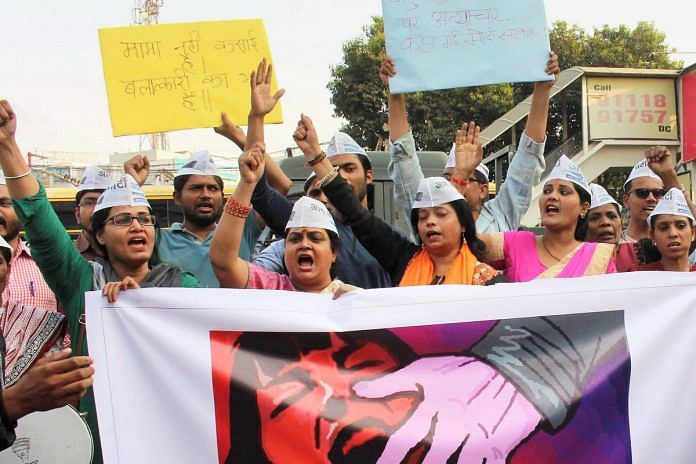
Five years after ‘Nirbhaya’ case, Human Rights Watch report says nothing much has changed when it comes to filing FIR or getting medical help.
New Delhi: Five years since the Nirbhaya case left an entire nation shaken, survivors of sexual violence are still grappling with the same debilitating culture of humiliation, hostility and harassment across the country’s police stations and hospitals, Human Rights Watch has said in a report.
The document released in the capital Wednesday says that questions of promiscuity, unwillingness to lodge FIRs, a concerted effort to ensure “compromises”, the humiliating two-finger test and an inadequate healthcare continue to make legal recourse a hellish experience for survivors.
In the aftermath of the December 2012 gang rape and murder of Jyoti Singh, the government and the legal fraternity went into a tizzy. From legal reforms, harsher punishments to gender sensitivity, the nation discussed every possible way to redeem itself.
“Nirbhaya” had ensured that neglected notions of women’s safety and gender justice became part of the country’s ordinary parlance. But not much seems to have changed since, going by the report.
The 82-page report, ‘Everyone Blames Me: Barriers to Justice and Support Services for Sexual Assault Survivors in India,’ details 21 cases across four states and two cities — Haryana, Uttar Pradesh, Madhya Pradesh, Rajasthan, Delhi and Mumbai. It contains more than 65 interviews with victims, family members, lawyers, human rights activists, doctors, forensic experts, government and police officers, as well as research by Indian organisations.
While the law stipulates that failure to register complaints in cases of sexual assault could land responsible police officers behind bars for two years, filing FIRs is not always easy. The culture of compromises and settlements remains rampant, especially when the perpetrator is wealthy and powerful, and the victim, marginalised.
The report documents the case of a 30-year old Dalit woman from Haryana who was raped and beaten up by six men in 2015, but altered her own testimony in court even after going through an array of social and legal tribulations.
“If you want to live in the village, you have to listen to the khaps. They (the survivor and her family) didn’t have another way. No one can fight and win from the khaps,” her brother-in-law was quoted to have said. The absence of a witness protection law in the country doesn’t quite help, the report adds.
The glaring lack of awareness about the legal aid available for victims is evident in the fact that none of the survivors of the 21 documented cases were even informed of their right to legal assistance by the police.
The Central Victim Compensation Fund created in 2015, which mandates that every rape victim receive a minimum of Rs 3 lakh, remains elusive and inefficient. Only three survivors of the 21 documented cases had received their compensation. Lack of coordination and public awareness has made the government’s ambitious ‘One Stop Centres’ equally inaccessible, says the report.
“Reporting rape should not contribute to the victim’s nightmare,” said Meenakshi Ganguly, South Asia director at Human Rights Watch.
“It takes time to change mindsets, but the Indian government should ensure medical and legal support as well as counselling to victims and their families, and at the same time do more to sensitise police officers, judicial officials, and medical professionals on the proper handling of sexual violence cases,” she added.

COMMENTS